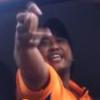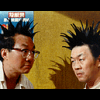Search the Community
Showing results for tags 'happened'.
-
Nearly a decade after Goal 2010, the ambitious plan to qualify Singapore's national football team for the Fifa World Cup, the Football Association of Singapore (FAS) is reviving its hopes of competing in the world's biggest football tournament in 2034. Speaking exclusively to The Straits Times on Saturday, FAS vice-president Edwin Tong said that it was a "realistic" goal for the Lions to achieve in 15 years' time. "We've always wanted to be somewhere on the world stage, so we need to start," said Mr Tong, the Senior Minister of State for Health and Law. "2034 is 15 years away...so you're looking at boys today who are maybe eight, nine to 14, 15 and if you can cultivate the programme that has that endgame in mind, it will do us a lot of good." The FAS' goal for the Lions to play in the 2034 World Cup will inevitably draw comparisons with Goal 2010, which flopped over a decade after it was first mooted in 1998. Sceptics will also point to Singapore football's slump in recent years, which saw the Lions' Fifa ranking dipping to an all-time low of 173 in October 2017 after a winless run of over 11 months. Singapore are currently ranked 162nd. But Mr Tong remains unfazed, saying: "If we're worried about trying to set up a goal and failing, we'll never get there. So we have to be realistic about our prospects; we're not aiming for the next 10 years, but set ourselves a 15-year horizon." He also pointed to the expanded 48-team format for the 2026 World Cup and beyond, which will see the number of Asian places increased by the current 41/2 to eight. He added: "There are a bit more opportunities...The obvious powerhouses, Korea, Japan, Australia, maybe some of the Middle Eastern countries, Saudi Arabia and Iran, the next tier you have Uzbekistan, Central Asians, and of course South-east Asians." "We can look at that as a goal. So it's not unrealistic, but it's also not easy," added Mr Tong, who was speaking at the unveiling of Singapore's first "Friendly Street" at Jalan Bintang Tiga by the Singapore Kindness Movement. Goal 2034 would be used to "focus and shape everything" that the FAS and its stakeholders do and he stressed that grassroots football, youth development, infrastructure and schools would be key to achieving success in 15 years' time. The FAS is currently engaging its stakeholders and refining its proposal, he added. In November 2017, the FAS unveiled its three-point plan for youth development aimed at widening the base of players, improving the quality of coaches and increasing opportunities for youth to play football. The national sports association said then that it hoped to reap the benefits in five to 10 years' time and that the ultimate aim was to develop talented young players to compete in a professional league and eventually the national team. However, Mr Tong said on Saturday that this was "not enough". He added: "We need to have key pillars, we start with grassroots and schools, we must align the way in which kids play football in schools and then we must have the support of facilities for training and matches. "Inevitably we have to work out what to do with National Service (NS), how we can align NS, which is important, with the needs of football." He suggested a "relook" into former club models such as the Singapore Armed Forces Sports Associations (Safsa) and Home United, which allowed full-time National Servicemen to train and play competitive matches. While qualifying Singapore for the 2034 World Cup may seem like a lofty goal, Mr Tong said it would "mean a lot to Singaporeans and sports fans" to see the Lions on the world's biggest football stage. He added: "It will give the country a lift and it is a goal that we want to be realistic about. It's not easy, but if you don't try, you'll never get anywhere. So we set ourselves a target, we try to lift everyone and push everyone behind it."
-
Hi all, 2nd car, bought new. COE, Insurance, Road Tax start on same day. Have been paying & renewing for 3 years. Then for past 1 week, have been trying to pay road tax renewal (6 mths) at onemotoring / AXS came back with insufficient coverage period. Has LTA change something in their system? Called LTA, lady says require insurance coverage for 1 more day. Called insurance, extend coverage need to pay. What is going on? Anyone experienced the same issue? Did you pay for the extension?
- 36 replies
-
- 1
-

-
- lta
- onemotoring
- (and 7 more)
-
The Forces That Could Plunge Venezuela Into Chaos https://www.bloomberg.com/news/features/2019-01-31/the-forces-that-could-plunge-venezuela-into-chaos From Juan Guaidó and U.S. sanctions to a starving population and protest, the country is rushing toward a breaking point. Events are moving fast in Venezuela, and not in President Nicolás Maduro’s favor. Scattered protests in Caracas the night of his second inauguration, on Jan. 10, quickly grew into organized demonstrations as thousands heeded opposition leader Juan Guaidó’s call to march against the regime. At press time, Maduro remains in office, but he faces a litany of threats: the economy, which has been devastated by low oil prices; powerful international interests, including the U.S., which condemned his 2018 reelection as illegitimate; Guaidó, head of the National Assembly, who’s claimed the title of interim president until new elections can be called; and the military, whose loyalty Maduro needs above all else to hold on to power. The president made a show of courting the armed forces’ support and has sent security forces into areas of unrest. But every day Guaidó roams freely in Caracas, holding rallies and building a government in waiting, Maduro’s grip on power becomes more tenuous. The Military Guaidó supporters first fanned out to military bases and national guard stations around Caracas in the days after he declared himself president on Jan. 23. They carried copies of a law from the National Assembly granting amnesty to any member of the armed forces who defects to the anti-Maduro cause. So far the top brass has stood behind the commander-in-chief, who long ago secured their loyalty with lucrative prizes: the reins of Petróleos de Venezuela SA (PDVSA), the state-owned oil company; control of the ports; contracts for housing projects; and the rights to valuable mining and oil-services concessions. It would be a surprise if military leaders broke ranks and moved against the authoritarian regime, says historian Tomás Straka of Andres Bello Catholic University in Caracas: “Their economic interests and vision are completely fused with Maduro’s.” Despite the outreach from the Assembly, they’ll be in trouble if he falls. Several high-ranking officers have been sanctioned by the U.S., accused by American prosecutors of graft, drug running, and other crimes. Many in the rank and file also remain behind Maduro, at least publicly. More than a few were photographed burning the amnesty documents. Still, dissent has simmered since before Maduro’s tenure. A military coup deposed his predecessor and mentor, the late Hugo Chávez, for a few days in 2002. The mood among the soldiers has only soured since, as the economy has crumbled, with those down the chain of command struggling along with the rest of the population. They, too, have to deal with desperate shortages of food and medicine, blackouts, and water taps that run dry. There have been reports of desertions. Asked for their reactions to the amnesty offer over the weekend, some men in uniform patrolling the city, rifles slung over their shoulders, gave a wink or a thumbs-up. The World While key allies Russia and China continue to support Maduro, the pro-Guaidó faction swelled in just over a week to more than 20 countries, including Canada, Israel, and the U.K. In Latin America, 11 countries lined up to follow President Trump’s lead in pushing for regime change. Among their motivations: More than 3 million people have fled Venezuela, according to the United Nations High Commissioner for Refugees, mainly to neighboring lands. “This isn’t merely a question of applying democratic principles, this is a question of countries bearing the brunt of the negative consequences,” says Benjamin Gedan, a former South America director at the White House’s National Security Council. Not all in the region are on board. Mexico and Uruguay have called for de-escalation; Bolivia, Cuba, and Nicaragua have reiterated their support for Maduro. The European Union stopped short of giving Guaidó the nod, though it signaled it would do so if Venezuela didn’t schedule “free, transparent, and credible presidential elections” by the beginning of February. Meanwhile, the U.S. has been assisting Guaidó in a kind of smoke-and-mirrors game of brinkmanship, insinuating that it may be building up a military force in Colombia to invade if necessary. Addressing the UN Security Council, U.S. Secretary of State Mike Pompeo was blunt. “Now it is time for every other nation to pick a side,” he said. “Either you stand with the forces of freedom, or you’re in league with Maduro and his mayhem.” The Money The Trump administration dealt its hardest blow yet to Maduro when it put new sanctions on PDVSA. Once Latin America’s largest producer, Venezuela is pumping less than North Dakota does these days, but oil sales remain its main source of revenue. Sanctions will effectively block the national oil company from exporting crude to the U.S. and crimp the regime’s cash flow. Its U.S. subsidiary, Citgo, will be allowed to continue operating, but all revenue will be held in accounts the Maduro regime can’t access. Guaidó has vowed to appoint his own boards to PDVSA and Citgo—a mostly symbolic gesture for now, but one that nevertheless adds to his aura of authority. Pompeo took another step toward starving out Maduro on Jan. 29, granting Guaidó control over Venezuelan assets and property in U.S.-insured banks, including the Federal Reserve Bank of New York. (The State Department has declined to say how much money is in the accounts.) American officials also successfully lobbied the Bank of England to deny Maduro access to $1.2 billion in gold the Venezuelan government holds in London, stymieing its efforts to pull in funds from abroad. Maduro’s government owes Russia and China billions of dollars in loan payments, but that’s unlikely to faze the sitting president. Since the Trump administration began slapping sanctions on Caracas in 2017, the government has defaulted on more than $9 billion in debt owed to bondholders, yet both creditors have been staunch so far in their support. The real problem for Maduro is losing the ability to dole out money. The more of the economy Guaidó gains control over, the harder-pressed Maduro will be to keep key allies on his side. The military, for instance, is unlikely to stick around if he loses the power of the purse. The People Hungry, broke, and exhausted, Venezuelans are angrier than ever with Maduro. And after more than a year of silence in the wake of the mass demonstrations of 2017, Guaidó has reignited their passion for protest. Almost two years ago, millions turned out and encountered tear gas and violence at the hands of security forces. Thousands were arrested during months of demonstrations, and hundreds died. This time the protests have been mostly peaceful. Security officers were out when Guaidó supporters again took to the streets of Caracas on Jan. 30, but they largely kept ranks as protesters marched past. Earlier, Maduro launched a series of nighttime raids in the working-class neighborhoods and slums that were once rock-solid Chavista bastions but have begun to shift away from him. There, under the cover of darkness, members of the deadly Special Action Force used tear gas, guns, and even grenades against demonstrators. “Maduro won’t let go of power easily,” says Jesus Gonzalez, a motorcycle taxi driver in the vast Petare slum. “He doesn’t mind pumping anyone who protests against him full of lead.” Through all of this, Guaidó hasn’t been arrested. Although Maduro has prevented him from leaving the country, he’s so far been free to travel locally, meet with foreign leaders, and speak to the press. Social media blackouts have curtailed his reach at times, while Maduro has been touring the country’s military installations trailed by a TV crew filming generals as they swear their allegiance. At press time, Guaidó was still leading marchers and planning further protests for Feb. 2, when the EU’s deadline runs out. Venezuela is ‘disease threat to America’ as measles and diphtheria cases soar in crisis https://www.express.co.uk/news/world/1081227/venezuela-news-maduro-crisis-president-guaido-measles-diphtheria The South-American country has plunged into economic ruin and political chaos following almost 20 years of price control and stringent policies launched by socialist leader Hugo Chavez. The meltdown has profoundly affected Venezuela’s health system, whose current state has been compared by experts to the ones of war-stricken countries such as Syria and Yemen. Diseases such as measles and diphtheria, which could be contained with widespread vaccinations, have re-emerged in the country, putting its neighbouring countries at risk of contagion as millions flee to Brazil and Colombia for a better life. A paper in the journal Emerging Infectious Diseases said: “The ongoing diphtheria and measles epidemics in Venezuela, and spill over into neighbouring countries, evoke the re-emergence of vaccine-preventable diseases observed in Syria and Yemen and the consequent threat to regional, and potentially global, public health.” Measles, a highly infectious viral illness which can be fatal, and diphtheria were thought to be under control in Venezuela, but its chronic shortage of medicines and vaccines and the general poverty of the country fuelled their return. Moreover, medically trained workers are among the millions who have left the country, according to the paper written by academics led by Alberto Paniz-Mondolfi, a Venezuelan infectious diseases pathologist. He said: “The continued mass exodus of around two million persons from Venezuela since 2014, not only to Colombia, but also to Ecuador, and Brazil, represents an ongoing risk that vaccine-preventable diseases will be carried with them.” Venezuela now contributes to nearly seven out of 10 cases of measles in the Americas, just 11 years after the country believed to have stamped it out. Diphtheria, a potentially deadly disease affecting nose, throat and sometimes skin, was first spotted again after 24 years in 2016.
- 48 replies
-
- politics
- latin america
- (and 5 more)
-
Anyone knows what happened to Chevrolet? It's cheap and safe. Not many budget cars are as safe as Chevrolet. Will they come back?
-
There used to be a lot of Q-plate cars in Singapore, to denote those which are owned by companies as opposed to individuals. In the 1990s, QEx, QBx, and QCx plates were commonly seen. But now, there are barely any left. Unless it's a very nice plate, such as a few single digit ones, it's very hard to see one on the roads now. The last I saw was QDP, and I was surprised because I have never seen a QDx before. Any idea what happened to them?
-
I don't know who changed the layout of the forum, but it messed up on my browser. I'm using Chrome btw.
- 9 replies
-
- layout messed up
- forum
-
(and 3 more)
Tagged with:
-
i have been wondering why the new mac at east coast park which was relocated to the seafood centre not long ago is closed just after they opened for a few months. the location was good, renovation was tastefully done with huge investment. and now, the unit is completely vacant. everything removed... only reason i can think of is the place is haunted??!! anyone knows?? TIA
-
There was a time when car-based panel vans were all over Singapore. I remember Corollas and Datsuns making the bulk of them. Some time in the late 1990s they disappeared altogether. However, they did not actually go out of production. Some models are still available in Japan and Europe, and even Mini has a panel van. Anyone knows what happened? Was it because of certain regulations, or they just somehow went out of favour? A KE70 Corolla panel van, used to be a common sight in Singapore. A MINI panel van, recent generation. Vauxhall Astra panel van, from 2006.
-
look this http://www.lta.gov.sg/content/dam/ltaweb/corp/PublicationsResearch/files/FactsandFigures/M03-Car_Regn_by_make.pdf Mitsubishi and Suzuki are common cars in other countries, but almost vanished in Singapore, or they were re-segregated to luxuary categroy as LAMBORGHINI? or they gave up Singapore the small 'red dot' market?
- 81 replies
-
- 1
-

-
- mitsubishi
- what
-
(and 2 more)
Tagged with:
-
Don't know to laugh or what?
-
now i have to click each individual reply to read.and that's very not friendly.
-
TODAY Wine investors see red by Cheow Xin Yi 04:46 AM Jun 17, 2011 SINGAPORE - A week after news of a police probe into an alleged investment scam involving Premium Liquid Assets' (PLA) Hong Kong office hit the headlines in the territory, Singapore investors of the locally-incorporated wine investment company are also searching for answers about their investments. According to an automated reply sent to investors who emailed the company, the Singapore branch of PLA is "currently in the midst of handling a legal issue pertaining to our business partner in Hong Kong". The email added its Hong Kong office chief executive and director is "suspected of fraud", and the firm's Singapore and Malaysia branches have reported the matter to "relevant authorities and are cooperating with the police and related departments" to resolve the issue. "With sincere apologies, we are unable to officiate any liquidation or new investment at the moment ... We seek your kind understanding if your liquidation payment has been delayed," said the email. The email did not name the director in question, who is reportedly missing as Hong Kong authorities investigate a case which could involve more than 400 investors and alleged losses of HK$50 million. The wine investment circles here refer to the man as "Christopher Koo". When contacted, a Singapore police spokesman said: "It is inappropriate to comment on police investigations, if any." Investors MediaCorp spoke to have expressed frustration at the uncertainty. One of them, who only wanted to be identified as Francois, said his only point of contact is his PLA broker, who told him to "wait" pending internal and external investigations. The French national said he has invested about S$29,000 in wine portfolios through PLA since 2009. Although the lights were switched on when MediaCorp visited PLA's Ngee Ann City office on Monday, no one answered the door when this reporter rang the doorbell. Some investors have turned to legal experts for help. Lawyer Sean La'Brooy, from Wee, Tay & Lim LLP, was approached by about 20 PLA investors on Monday and he is now "exploring legal options" with them. Other investors have held preliminary talks with provisional liquidators and asset recovery firms. It is believed there are between 100 and 400 PLA investors in Singapore, with investment amounts ranging from between S$7,000 and S$160,000. The Consumers Association of Singapore (CASE) has received one complaint since March regarding PLA, but the consumer body's executive director Seah Seng Choon said the consumer body does not oversee investment-related matters. Wine investments are also not regulated by the Monetary Authority of Singapore, noted Mr Seah. A check with the Accounting and Corporate Regulatory Authority (ACRA) showed PLA as a S$300,000 paid-up limited exempt private company which was incorporated in 2005. The records list a Mr Woo Kuan Yong as a director. When MediaCorp visited his flat on Wednesday, Mr Woo told MediaCorp that he was asked by his step-son, Mr Eldric Ko, to "register the company" but he has never been to the firm's office. Mr Woo's wife said she last spoke to Mr Ko, who had called from Bangkok in April. She added that subsequent attempts to contact him on his Singapore mobile phone have been unsuccessful thus far. --------------------------------------------------------------------------------
-
Since we are talking about CSJ earlier, I suddenly remember this young patriotic Singaporean boy... http://theonlinecitizen.com/2012/02/jarrod...signs-from-sdp/ Jarrod Luo Singapore Democratic Party's (SDP) candidate for GE 2011 and former Honorary Secretary of Young Democrats has resigned from the Party on 9 February 2012. A spokesperson for SDP in confirming Mr Luo's resignation said: "The SDP can confirm that disciplinary action was taken against Mr Jarrod Luo who was suspended in December 2011. The party can also confirm that Mr Luo has resigned from the party on 9 February 2012. The reasons for the suspension were enumerated in the CEC's show-cause letter to Mr Luo. As the letter was communicated in confidence, we are not at liberty to divulge its contents. Out of courtesy to Mr Luo and as he is no longer with the party, we will not pursue the matter any further. We wish Mr Luo well. As for the Young Democrats, the SDP's youth wing continues to grow. As can be seen from our party website, our young members have been active and are engaging in several activities. This trend will continue. " Mr Luo in confirming his resignation from the Party revealed that he had sent out a mass email to Party members requesting for more transparency and democracy in the Central Executive Committee (CEC) of the Party. Mr Luo's email also raised the handling of issues by the CEC, as well as the unilateral delay of Party affairs by them. Mr Luo was then accused of sending the same mass email to a non-SDP member. Mr Luo however claims that that person was in the Party's internal mailing list. The Party then asked Mr Luo to appear before a show-cause meeting to justify and explain his actions, following which he was sent a suspension letter by the CEC. Mr Luo said that he then sent an email asking for a board of inquiry to be held to look into this alleged wrongdoings of the CEC on the 28th of December last year. This email, he says, was not acknowledged nor replied.
-
Temasek review what happened close shop any alternative site to read
-
He no longer in Tampines GRC? Where is he now? Retired?
-
I missed the live telecast........... how come Vettel ended up 2nd? and Webber managed 3rd when he started grid 19th?? ....... must have been an exciting race
-
I used to check out this site for up and coming new models up till few weeks ago... now it's 'gone'.... victim of the disaster in Jap??
-
Went to the Kia showroom to see the launch of the OptimaK5 where it was a very busy day for the Kia sales people and noticed that the Mitsubishi showroom was deserted and there were a few Kia cars in the Mitsubishi showroom. How can that be? What is happening??!! Mitsubishi was at one time my favourite brand but I felt sad that things aren't looking good for them.
- 40 replies
-
- happened
- Mitsubishi
-
(and 2 more)
Tagged with:
-
http://www.todayonline.com/Singapore/EDC11...in-my-dads-case? SINGAPORE - For eight years he waited anxiously for news of the whereabouts of his dementia-stricken father. When the police called on Dec 1 last year, Michael (not his real name), 52, got the news that he had been bracing for: His father, 70, had died from a chest infection in hospital. But he was anguished to learn that he could have been reunited with his father only months after he had lodged a police report in 2002 - if not for lapses by Government agencies. Said Michael, who works in the construction industry: "I want to know what went wrong these eight years. They should have been able to establish his identity easily when they found him, so why did it take them so long to contact us?" In response to MediaCorp's queries, police spokesperson Lau Kian Keong said the Ministry of Community Development, Youth and Sports (MCYS) had picked up Michael's father in May 2002 and found him disoriented. Deputy Superintendent of Police (DSP) Lau said: "He was later diagnosed to be suffering from dementia and MCYS' attempts to establish his identity were also unsuccessful." DSP Lau added that a Police Gazette was issued but MediaCorp understands that the name of Michael's father was misspelled in it. It was only six years later, in 2008, that the authorities managed to establish the identity of Michael's father, DSP Lau said. He did not explain the delay nor how they finally established his identity. In December the following year, the Immigration and Checkpoints Authority (ICA) also issued him a new identity card - believed to be because Michael's father needed to be admitted to hospital. The card bore his original IC number but lists the Lions Home for the Elders at Toa Payoh Rise address as his address. When contacted, the home declined to comment, citing confidentiality reasons. Yet, the authorities never contacted Michael all this while, until his father died in Tan Tock Seng Hospital on Nov 30 last year. Said DSP Lau: "Regrettably, due to a lapse in communication, his missing person status was only discovered when he passed away in hospital last year. We regret the lapse and the failure to inform the family earlier when his identity was established. Police are studying how to strengthen the current processes to avoid such a lapse in the future." When asked what went wrong in this case, an MCYS spokesperson would only say it has "an established system and works in coordination with other Government agencies to trace identities of persons picked up and also find out their reasons for vagrancy". Homes which MediaCorp spoke to said they do not have the authority to run checks on the identities and backgrounds of destitute persons. MCYS social workers are responsible for establishing these persons' identities and contacting their families, they added. Under the Destitute Persons Act, an inquiry may also be ordered on people picked up by MCYS. Their fingerprints and photographs may also be taken. Adventist Home for the Elders chairman Wan Kwong Weng told MediaCorp that he had not heard of such cases before. "Usually, you find that these destitute persons are estranged from their families," said Mr Wan. He noted that more could be done to help families find their missing loved ones. For example, there could be a shared database for the relevant agencies to share information, he said. For Michael and his family, such a system could have made a difference. Timeline of events Early 2002 Son lodges police report about missing father, who was suffering from dementia. May 2002 Father picked up by MCYS and believed to have been sent to elderly home. Attempts to verify identity were unsuccessful 2008 The authorities establish father's identity but family was not contacted. Dec 2009 The ICA issues a new identity card to the father. Nov 2010 Father passes away from a chest infection in Tan Tock Seng Hospital. Son informed of the passing a day later.






















